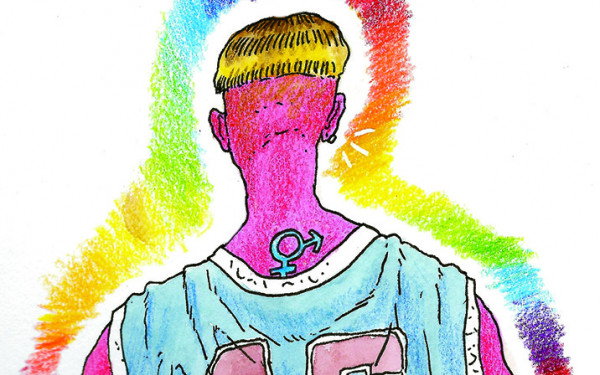Concordia officially removes gender identifier from student records
Historic motion by the university comes after years of backlash from advocacy groups and students
Following an internal email sent to staff and system administrators on Jan. 25, Concordia has confirmed the removal of the gender identifier from university student records, effective immediately.
The news—which was originally posted by the Simone de Beauvoir Institute’s Facebook page on Jan. 17—marks a historic change in not only the way enrolment processes will take place henceforth, but also in terms of how students will be addressed among peers both in and out of class.
The details in the email highlight the removal’s purpose, which is to build “an inclusive, equitable and respectful environment for the entire Concordia community and, in particular, for trans, non-binary and gender non-conforming members.”
On behalf of the university’s administration, Stéphanie de Celles, Registrar Executive, and Lisa White, Director, Equity Office, asked staff via email to begin routinely referring to students by either their preferred pronouns or their first and last names that are submitted on file.
While this announcement does not cover specifications regarding the use or abandonment of dead names altogether–names that trans and non-binary people choose to no longer go by–most professors and instructors have already been doing the courtesy of noting down students’ preferred names at the start of each semester, regardless of whether or not they have filed for a preferred name request.
Although Concordia claims to be an institution that is “deeply committed to fostering diversity, equity and inclusion,” as the email states, it has taken a long time and a lot of effort for this change to enact.
“It’s definitely a good move since it helps remove false correlations that society has between sex assigned at birth and gender identity, and grants students the space to be able to express their gender identity through their own means.” — Celeste Trianon
For years now, socio-political advocacy groups like the Centre for Gender Advocacy and the Concordia Student Union have been pleading for the removal of gender identifiers from university student records.
Celeste Trianon, a trans rights advocate and public educator affiliated with the Centre for Gender Advocacy says this move by the administration is a step in the right direction in terms of inclusivity. According to them, the removal of the gender identifier is mutually beneficial for all students.
“It’s definitely a good move since it helps remove false correlations that society has between sex assigned at birth and gender identity, and grants students the space to be able to express their gender identity through their own means,” they said.
Trianon believes this change gives students more ownership over how they prefer to be identified without having to be subjected to the information that was previously in the university’s Student Information System database.
“[The SIS database can] unfortunately be accessed by quite a few people, so from a confidentiality standpoint, this change helps enable students to make their own choices and empowers them to choose how they self-identify,” Trianon added.
The process of removing the gender identifier in Quebec is very difficult. Trianon notes that this undertaking is arduously slow from the moment the form is sent to the Quebec Directeur de l’état civil, to the moment people receive their identification card with their preferred gender marker. Therefore, on the university level, this change is a sign of social progress for students who do not necessarily have the funds or means to apply and successfully win a legal dispute with the provincial officials on the matter.
“The CSU has always been in favour of trans rights and has been fighting for better [accessibility to resources] in solidarity with trans and gender non-conforming students,” said CSU academic and advocacy coordinator, Hannah Jamet-Lange. “The introduction of Bill 2 has only increased our attention to this issue.”
Watch: Interview with Celeste Trianon on Bill 2
Jamet-Lange added that the CSU sent a legal brief titled CI-055M to the Quebec National Assembly, and to the committee debating on Bill 2 to combat its enactment last December. Additionally, in partnership with the CGA, the CSU presented the implications that Bill 2 would have on trans and gender non-conforming students to the Concordia Senate on Dec. 10. These implications include permitting trans people to have their biological sex identification changed on legal documentation only after undergoing gender-affirmation surgery. As such, those who choose to not undergo the surgery are forced to specify the gender they were assigned at birth, marking Bill 2 as possibly one of Quebec and Canada's most transphobic bills to date.
The CGA also submitted a legal brief of their own to the Quebec government titled CI-041M to fight the controversial and discriminatory bill.
“We got the university Senate to pass a motion to stand with trans students, staff and faculty, and are committed to working on trans issues,” Jamet-Lange said. “I’m hoping that the removal of the gender identifier from the SIS will help students overall, but this is certainly not the end of the fight for increased [inclusivity at Concordia].”




_600_375_s_c1.png)
_(1)_600_375_s_c1.png)

